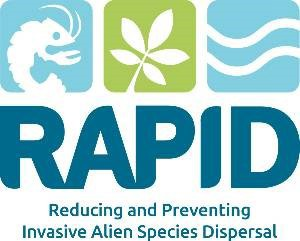Globally, invasive species are considered to be one of the most significant causes of biodiversity loss, second only to habitat destruction. The economic impacts are also severe, with an estimated annual cost of at least 12 billion Euros across Europe including a cost of 1.7 billion pounds to the British economy. Freshwater and marine habitats are particularly vulnerable because of interconnectivity and widespread use for recreation and business.
We worked with RAPID LIFE for a three-year project (2017-2020) piloting innovative approaches to Invasive Alien Species (IAS) management in freshwater aquatic, riparian and coastal environments across England. The project had two strands: one strand engaged regional stakeholders in the production and implementation of five Regional IAS Management Plans (RIMPS) delivering consistent, regionally tailored prevention, early warning, rapid response, eradication and control of IAS throughout England. The second phase produced awareness-raising materials and training toolkits for water resource managers and user groups along with materials to improve uptake of biosecurity to slow the spread and prevent the introduction of new IAS in regions.
As part of this project, we also ran biosecurity workshops throughout the South West to promote best biosecurity practice for anyone who uses watercourses, lakes or coastal environments recreationally.
More information on the RAPID LIFE project and the completed RIMPs can be found here.
This project was completed in 2020. We will continue to tackle invasive non-native species within Wiltshire.

